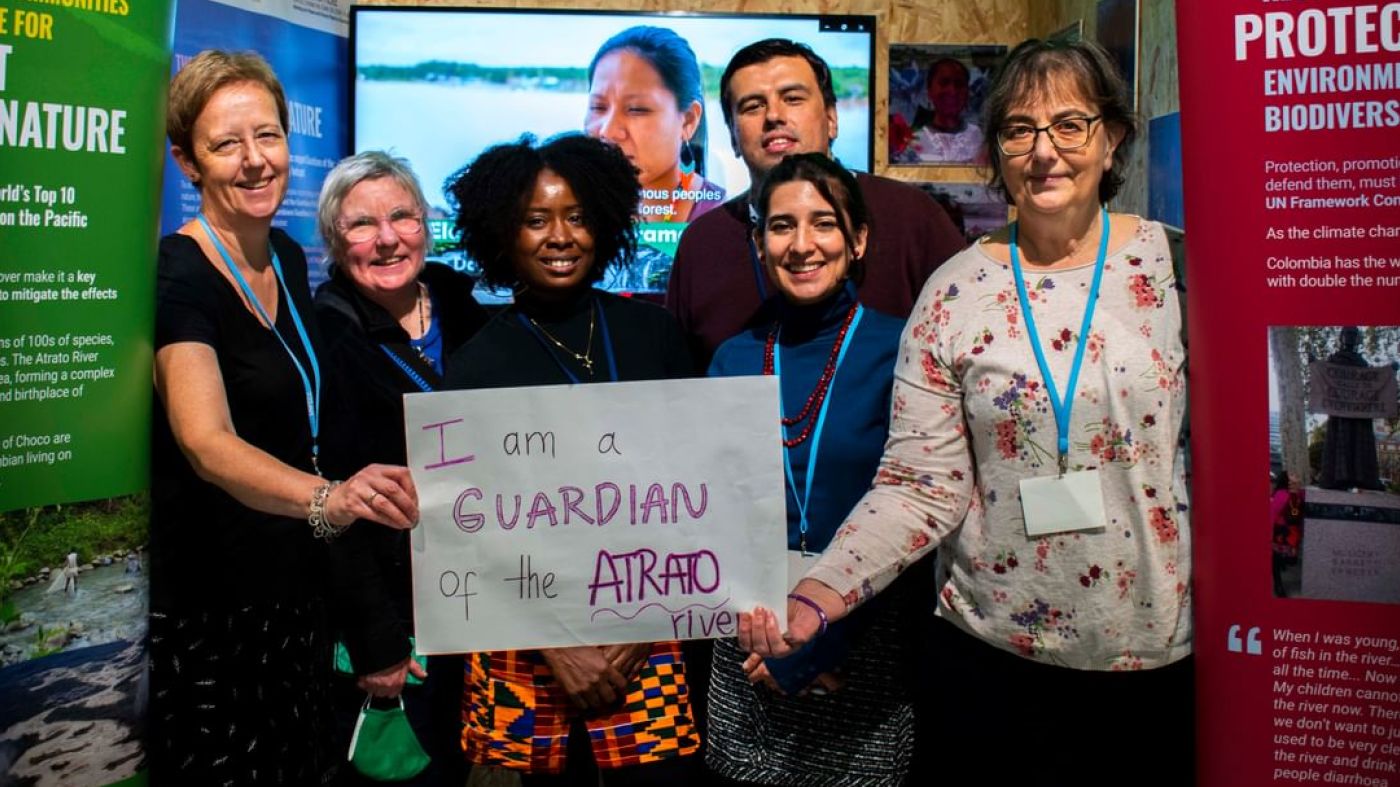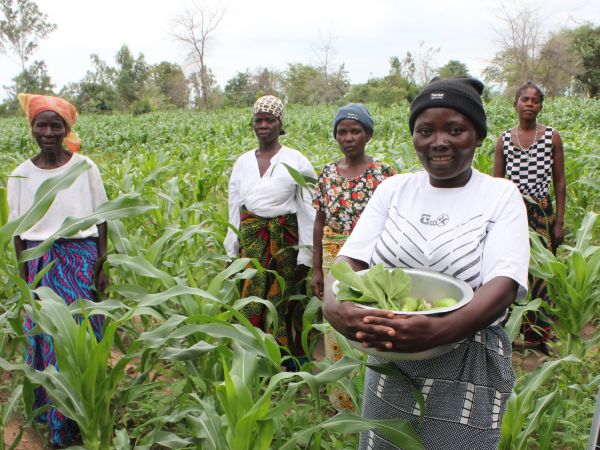Reflections on COP as we head towards outcomes
11 November 2021

SCIAF came into COP with 3 main asks for global leaders backed by over 4,000 signatures from our wonderful supporters.
- Take necessary action to keep global warming to 1.5
- Provide climate finance to protect the poorest
- Make COP accessible to those from the global south
As COP26 draws to a close, SCIAF Advocacy Manager Geraldine Hill reflects on progress made so far in all three areas, and whether world leaders are going far enough to protect the world’s poorest people.
Keeping global warming to 1.5
The first week of COP saw a series of announcements around phasing out coal, deforestation, reducing methane emissions and ending finance to fossil fuels. We saw some real progress from countries like India, which committed to net zero emissions by 2070. Various organisations have been analysing what these announcements mean, and how close they get us to keeping to 1.5 degrees warming. The Climate Action Tracker has said that based on short term goals, we are on track for an extremely dangerous 2.4 degrees warming. Yet, looking at the longer-term commitments made so far during COP26, the International Energy Agency (IEA) forecasts that we could reach 1.8 degree warming. Either way, both are clear that this next decade is crucial and we need far more ambition if we are to keep 1.5 degrees in sight.
On the one hand, these announcements are important because they help to build momentum. However, many of them are repackaged in some way from announcements made in previous COPs, and no country has yet delivered on all the promises previously made. In addition, the announcements do not provide detail on the implementation needed to keep us to the targets set for 2030.
Providing climate finance to protect the poorest
In 2009, developed countries committed to providing US$100 billion per year of finance from 2020-2025 to help developing countries adapt to climate change and grow climate friendly economies. This money has still not been delivered, and there are discussions around how this money should be used, with not enough going to help them adapt to the changing climate. This hurts the poorest most. The poorest cannot wait for net-zero targets far into the future – they need support now to deal with the impacts of climate change that they are already experiencing.
Another aspect of the climate finance picture is loss and damage. This means providing compensation for communities on the frontline of the climate crisis who can no longer adapt but will have to move and create new lives elsewhere.
Today the Scottish Government announced that it would commit £2 million of its expanded Climate Justice Fund to this. Although £2 million is a very small amount of money given the scale of finance needed, providing money for loss and damage is a very important principle, and is a first. In a small way, SCIAF has helped to build momentum towards this, through our work supporting the Glasgow Climate Dialogues. The four sessions, chaired by SCIAF and co-hosted by the Scottish Government and Stop Climate Chaos Scotland, were designed to engage with, learn from and provide a platform to key voices from the global south in the lead in to COP. The session on loss and damage led to various follow up conversations with the government.
The First Minister has since said that “stepping up is an act of reparation and paying the debt we owe to developing and more vulnerable countries across the world.” This language is important and helpful, because it confronts head on the need for developed countries to pay a debt to those countries which have done least to cause the climate crisis in the first place and are now suffering most. The Scottish Government’s announcement has reverberated around COP, with the UN Secretary General welcoming its commitment to this issue.
Participation from the global south
SCIAF was able to facilitate the voice of the global south being heard prior to COP through the Glasgow Dialogues’ process, and we have made sure that our partners who have been able to travel to Glasgow have had opportunities to talk about their key concerns in side events, media engagements and bilateral meetings with Scottish Ministers, including the First Minister. Our partners saw the strength of feeling in Glasgow on the need for urgent action at the 120,000 strong march on Saturday, and participated in the COP mass and an ecumenical service on Sunday, important opportunities of faith witness. However, we know that many others have found it difficult to participate, with some saying that access to important meetings this time has been more restricted than previously.
In summary, COP has been a mixed bag, and the last frantic hours of negotiation will be absolutely crucial to delivering a strong outcome. While good on ambition, concrete implementation measures are still lacking and many developing countries are very frustrated that the 26th meeting of the COP will again fail to deliver justice for them.

There are solutions to the Climate Emergency. And you can help us provide them.